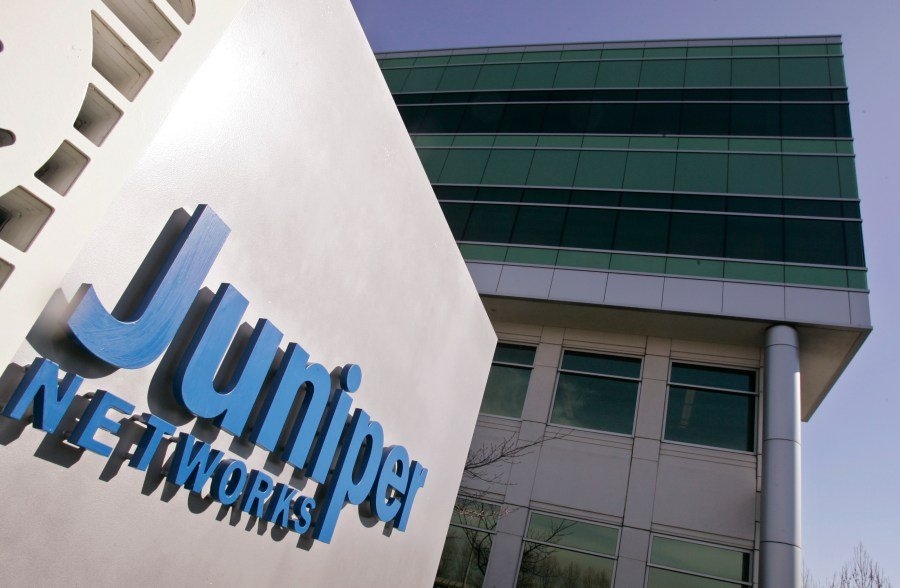
Several Senate Democrats are calling for an investigation into the Department of Justice’s (DOJ) decision to settle a lawsuit blocking Hewlett Packard Enterprise’s (HPE) $14 billion acquisition of Juniper Networks.
Democratic Sens. Richard Blumenthal (Conn.), Cory Booker (N.J.), Elizabeth Warren (Mass.) and Amy Klobuchar (Minn.) raised concerns to the DOJ inspector general Friday about the circumstances surrounding the proposed settlement.
Two top officials in the agency’s antitrust division — Roger Alford, principal deputy assistant attorney general, and Bill Rinner, deputy assistant attorney general and head of merger enforcement — were recently fired for insubordination.
The firings reportedly followed internal disagreements over merger policy, in which Attorney General Pam Bondi’s chief of staff overruled the antitrust division’s head, Gail Slater, to approve the HPE-Juniper settlement.
“In all, these events reflect a concerning pattern of behavior within the DOJ and point to possible politicization of the process by which the DOJ analyzes proposed mergers and acquisitions, as well as undertakes and resolves enforcement actions,” the senators wrote in a letter to acting DOJ Inspector General William Blier.
“We are concerned that, in addition to improper interference in the enforcement of our laws, the full extent and parties involved in this coercive campaign are not known and that other improper conduct could have occurred,” they continued.
The Justice Department sued to block the merger between the nation’s second- and third-largest wireless network providers in January, shortly after President Trump took office. The lawsuit marked a key point of continuity with the Biden administration, which had been preparing to challenge the merger.
HPE and Juniper pushed back on the lawsuit at the time, arguing the DOJ’s analysis was “fundamentally flawed” and the merger would allow the companies to “more effectively compete with global incumbents.”
In late June, the agency announced a settlement, allowing the acquisition to go forward as long as HPE divests its division for small and medium businesses and licenses Juniper’s software to independent competitors.
Axios reported Wednesday that the U.S. intelligence community weighed in on the lawsuit, urging the DOJ to allow the merger to proceed to boost American companies competing with China’s Huawei.
The senators argued the settlement fails to address the issues raised in the DOJ’s initial lawsuit, which suggested the merger would essentially result in a duopoly in the market between HPE-Juniper and Cisco.
They also underscored HPE’s reported decision to hire lobbyists with close ties to the Trump administration, as well as the subsequent firings of antitrust officials.
The same four senators raised concerns to Hewlett Packard president and CEO Enrique Lores in a separate letter Friday about what they described as the company’s “hiring of political consultants in an apparent attempt to assert undue influence, if not coercion” to settle the DOJ lawsuit.
Lores is the head of Hewlett Packard, not HPE, which split off from the former in 2015.
“HPE’s hiring of these consultant close to the Trump family and White House creates the appearance that it sought to use outside political pressure and retaliation against the Antitrust Division to end its lawsuit and reporting suggests that the full scope of HPE’s consultants or influence campaign has not been disclosed,” they wrote.
They pressed the company for information about the consultants, the nature of their work and any discussions they had with the DOJ’s antitrust division or members of the Trump family.
HPE spokesperson Adam Bauer said in a statement that the company is confident the Juniper acquisition is “in the public interest and will promote further competition” in the market.
“The transaction was appropriately approved with certain remedies by the U.S. Department of Justice, and it was unconditionally approved by 13 other antitrust regulators around the world,” Bauer added. “We respect the role our regulators play in maintaining competitive markets and appreciate the professional and constructive way in which the DOJ engaged with us in approving the deal.”


